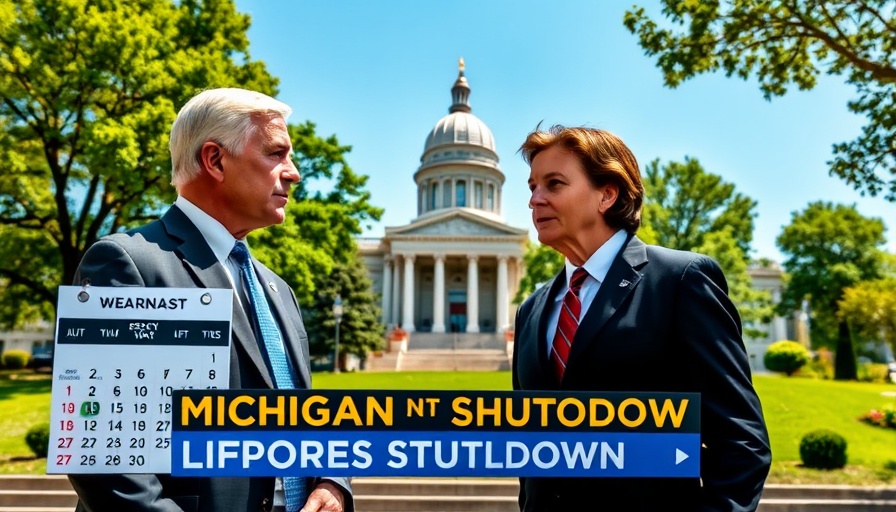
Heartbreaking Tragedy Strikes Minneapolis Catholic School
The recent mass shooting at a Minneapolis Catholic school left communities reeling in shock and despair. As we mourn the loss of two young lives, aged just eight and ten, and the injury of numerous others, we are forced to confront the grim reality of gun violence in our nation. This tragic incident highlights the urgent need for reflection and action on the topics of safety and mental health as they pertain to our places of worship.
In 'The Pulse: Minneapolis Catholic school mass shooting', the discussion dives into the recent tragedy at a Minneapolis school, exploring key insights that sparked deeper analysis on our end.
The Brutal Details Unfolded
In this incident, a gunman, identified as 23-year-old Robin Westman, opened fire while children and adults attended services. Authorities confirmed that the shooter legally purchased the firearms and did not have an extensive criminal history. The harrowing accounts from survivors included a young boy, traumatized as he recounted the horrific scene where a friend was shot. This firsthand experience resonates with the unfair and alarming normalization of active shooter situations, even within our sacred spaces. To know that children have become familiar with such drills in schools, yet are left unprepared in places where they should feel safest, is deeply troubling.
Supporting Our Children in Times of Crisis
As parents, guardians, and community members, we must prioritize the emotional well-being of our children. Developmental psychologist Dr. Erica Bortnick emphasizes the importance of open conversations about such tragedies. It is crucial for adults to approach these discussions with a clear purpose and to prioritize understanding their children's perspective. The trauma these young minds experience extends beyond the event itself and can significantly affect their mental health. The call to action is clear: equip children with the ability to talk about their feelings and learn coping mechanisms for such distressing events.
Communities United Against Violence
The Minneapolis tragedy is sadly not an isolated incident. In the past, we have witnessed similar events across faith groups, from Charleston’s Emanuel AME Church to Pittsburgh’s Tree of Life Synagogue. Each occurrence underscores the need for interfaith solidarity to combat violence born from intolerance and hatred. Communities must come together, not only to mourn but also to engage in dialogue that fosters understanding and acceptance of diverse perspectives.
Actions Needed for Safer Spaces
In light of this tragedy, community leaders have emphasized the importance of reviewing security measures at places of worship. The former Detroit Police Chief, Ralph Godbee, has shed light on the need to maintain vigilance in these vulnerable environments. While we must uphold the sanctity of these spaces, we cannot ignore the pressing need for safety protocols. Security expert Mike Harwell suggested that preventive measures, such as mobile patrols and reinforced windows, must be considered to provide a layer of protection without compromising the welcoming nature of religious institutions.
The Role of Mental Health Support
To truly combat the root causes of violence, we must address mental health proactively. There are alarming signs that often precede such outbursts, including shifts in behavior that, when noticed early, can prompt intervention. Family and community members must empower one another to seek help when distress is apparent. Investing in community mental health resources is a vital step toward prevention.
Creating a Culture of Compassion and Tolerance
The urgency of promoting tolerance might never feel greater. Steve Spreitzer, a community leader advocating for interfaith dialogue, highlighted the importance of listening and understanding differing perspectives. By creating an environment where respect and empathy flourish, we reduce the likelihood of conflict and violence. The initial step requires individuals to engage and forge relationships across cultural and ideological divides.
Moving Forward Together
As we grapple with the aftermath of the Minneapolis Catholic school shooting, it is essential that we remain steadfast in our commitment to enhancing public safety, fostering tolerance, and supporting mental health. Together, as a community, we must work towards ensuring that no family should endure the pain of losing a child to senseless violence. Engagement in meaningful discussions, advocacy for mental health resources, and stringent security measures in sensitive locations are actions that can lead to that change.
As residents of Michigan and Metro Detroit reflect on this tragedy, let this be a reminder of our shared responsibility to keep our community safe and to nurture a culture of compassion and understanding.
 Add Row
Add Row  Add
Add 



Write A Comment